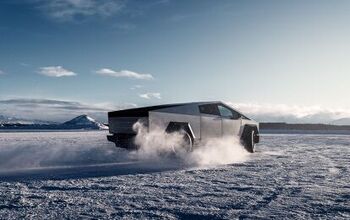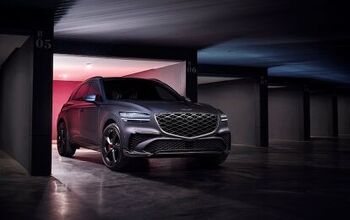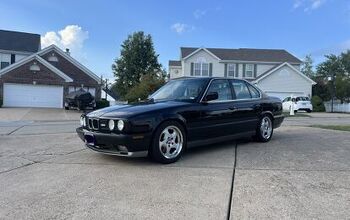"Small Cars Can Be Bad Investments, Both for the Planet and the Pocketbook"
First it was “the HUMMER H2 is better for the environment than the Prius.” Now it’s big cars in general are better for the planet– and your wallet– than small ones. “Small cars don’t last,” automotive analyst Dennis DesRosiers tells wordsmith Barbara Righton of Macleans. “They fail to retain value, utility or desirability.” Babs connects the dots. “Small cars are less durable. First off, they are built lighter. Secondly, they are cheaper, so they attract younger drivers who tend to maintain them poorly. They have a lower resale value, which guarantees they won’t trade hands many times before they are scrapped, and they’re more likely to be written off by insurance companies if they are involved in serious collisions. In other words, ‘the useful life of the vehicle’ is as short as their wheel base, according to Erich Merkle, an automotive consultant with Crowe Chizek in Grand Rapids, Mich.” Quite aside from the fallacy of the argument (I’ll let the Best and Brightest make the case), do I detect some kind of weird sneering thing going on? Indeed I do. “Merkle advises consumers to buy a mid-sized car that is a couple of years old and hang onto it. That way they can sit contentedly and watch the parade of tiny cars in their neighbours’ driveways come — and go.” [thanks to rpn453 for the tip]
More by Robert Farago


































Comments
Join the conversation
The media run around quoting Desrosiers all over the place. I can't figure out where the hell he came from, or why he's considered to be such an "expert". Even so, this asinine comment of his finally exposes his bias, which is the same as that of most "working" auto journalists - go where the bread and bribery is and never mind honesty and fairness. In other words, make like our politicians.
Actually, as my father used to say, ALL cars are bad "investments." That is to say - unless you're referring to a rare fluke such as a desireable collectable - they're not investments at all, but in fact they are a depreciating asset. Of course, that little issue has never stopped me from buying these wonderful depreciating assets and enjoying every single minute of driving them...
Put me down as one of the guys driving an old Tercel. Are the junkyards filled with Cavaliers and Escorts and whatever the hell Chrysler was selling at that point? Yeah. But the Corollas and Tercels and Civics and Accords and CRXs are still around, for the simple reason that running one of them into the ground is a significant feat. And, with newer cars, it's a similar story. A well-engineered car isn't going to turn into a beater as easily, no matter what it costs or how it's maintained. And, at this point, when a good chunk of the domestic's lineup can be had for fire-sale prices, size doesn't have a huge relationship with price anymore. In another 10 years, the junkyards are going to be filled with Dodge Rams, not Honda Fits.
ctoan, you do make a good point. Again, from having a 2nd gen Escort in my family for 13 years, I know that it is a well engineered and reliable car. I believe that their heavy sales to rental fleets and perceived disposability is the main reason why so many are junked out. Or their owners forgot to the timing belts. Either one. But from owning an Escort I know that at least the 91-96 models are very durable cars. I own and drive a 93 Escort wagon right now. Again, when they are perceived as disposable (sold heavily to fleets, and whored off the lots at fire-sale prices), they will be treated as disposable. Perhaps thats why the causalities pile up on the American side of the economy car line, while the Japanese ones are still running around on our roads - well, the ones who haven't rusted into piles of rubble yet.